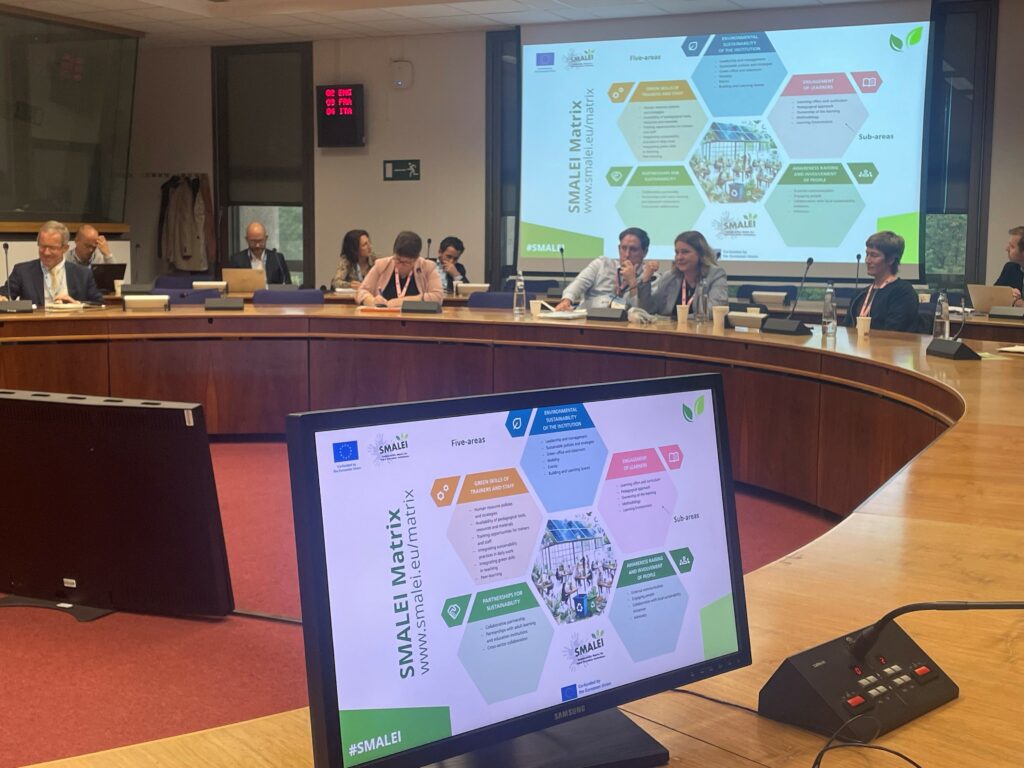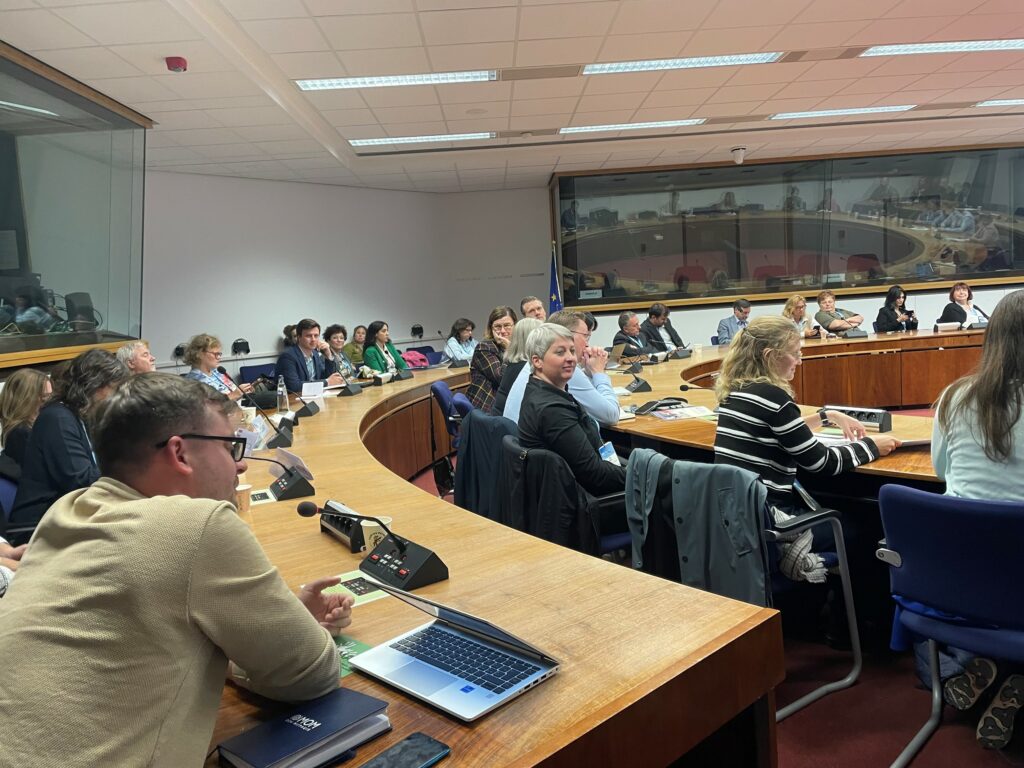Empowering Societies Through Education and Skills for the Twin Transitions
10/10/2024

On 09 October 2024, EARLALL co-organised together with the European Association for the Education of Adults (EAEA) and AGE Platform Europe the session “Empowering Societies Through Education and Skills for the Twin Transitions” in the context of the 22nd European Week of Cities and Regions in Brussels. The event featured discussions on how adult learning and lifelong education can drive progress in the areas of sustainability, digital literacy, and inclusivity.
The session was moderated by Neža Repanšek of the European Economic and Social Committee (EESC), who set the stage by highlighting the pivotal role that education plays in addressing both the green and digital transitions. She emphasized that adult education, especially when paired with community initiatives, is essential to equipping people of all ages with the necessary skills and knowledge.
Andrea Bernert-Bürkle, Head of EU Projects at Volkshochschulverband Baden-Württemberg e.V., led the first session. She explored the connection between adult education (AE) and the green transition, focusing on the SMALEI Erasmus+ project, which aims to improve the sustainability of adult learning and education (ALE) providers and organisations all over Europe and to increase their capacity to contribute to forward-looking societal developments. Bernert-Bürkle emphasized the power of adult education in driving ecological change by involving not only students but also educators and communities. With over 35,000 trainers and 2 million learners across the Baden-Württemberg region, the Adult Education Association Baden-Württemberg (VHS Verband) have enormous reach. Through the SMALEI project, they promote sustainability practices both within institutions and in broader communities. The SMALEI project’s unique “matrix”, which assesses sustainability across five core areas, serves as a framework for integrating eco-friendly practices into educational environments. This matrix allows institutions to identify areas where they can improve their environmental impact, ranging from energy use to waste management. Bernert-Bürkle highlighted practical examples, such as installing solar panels at educational centers and working with local NGOs to raise public awareness of environmental issues.



Susanne Dobner, coordinator of the SEE-U project from queraum, took the stage for the second session. She discussed the importance of empowering older generations with digital skills, a critical component of the twin transitions. The SEE-U project focuses on helping older adults discover their neighbourhoods digitally, fostering a sense of community while closing the digital divide. Dobner emphasized the growing need for older people to adapt to the digital world, especially as digital tools become more central to daily life. By equipping older citizens with new skills, the SEE-U project is bridging generational gaps and ensuring that everyone, regardless of age, can take part in the ongoing digital transformation.



Kieran McCarthy, Councillor of the City Council of Cork and a member of the Committee of the Regions, presented Cork as a prime example of a “Learning City.” He explained how Cork’s commitment to lifelong learning has fostered a culture of inclusivity and intergenerational cooperation. Since 2014, Cork has been officially recognized as a Learning City, where opportunities for education and skill development are accessible to all citizens, regardless of age or background. McCarthy discussed the Cork Lifelong Learning Festival, which takes place annually and features a wide range of activities, from walking tours to workshops.
The session concluded with a focus on the broader role of adult education in the twin transitions. Regional authorities, AE providers, and civil society organizations have a unique position to drive societal acceptance of the changes brought about by the digital and green transitions. By fostering skill development and environmental consciousness, adult education serves as a vehicle for social inclusion and sustainability.
The SMALEI and SEE-U projects are powerful examples of how adult education can be tailored to meet the needs of a rapidly changing world. The twin transitions, though challenging, present an opportunity to create more resilient, inclusive, and sustainable societies. The work being done in cities like Cork demonstrates that when communities come together to learn and grow, the potential for positive change is immense.
Resources:




